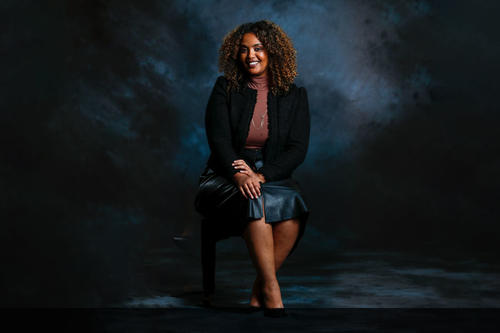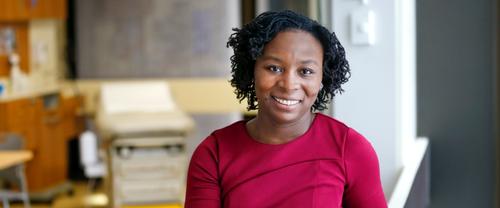
A shift in the conversation
Doctoral candidate and 2017 Master of Public Health (MPH) graduate J'Mag Karbeah has been involved with numerous high-profile research efforts at the University of Minnesota centering around reproductive health and justice in the African American community.
She works closely with her advisor, Rachel Hardeman, an associate professor and director of the School of Public Health’s Center for Antiracism Research and Health Equity.
Here, Karbeah talks about where she got her start, where she’s heading, and why this work matters.
On where she got her start
I am a Liberian immigrant—I think one of the handful of Liberian families who ended up in Milwaukee instead of in the Twin Cities. My parents both have health care backgrounds. My mom was a midwife in Liberia, and my dad was a physician assistant, and here they are now both nurses.
So I was someone who was like, ‘Oh, I'm going to become a doctor.’ I was premed through undergrad until I took a history of science course and really took a step back. I was struck by how we racialize illness and disease … and how the history of race and racism influence the dialogue around what is considered to be a health crisis or a public health issue.
J'Mag KarbeahI was struck by how we racialize illness and disease … and how the history of race and racism influence the dialogue around what is considered to be a health crisis or a public health issue.
A moment of change and a pivot toward reproductive health
I graduated undergrad in 2013, and that was pretty soon after the murder of Trayvon Martin. That was a big national moment and got me thinking, ‘What does it mean to be a Black person and specifically a Black person with some reproductive intention in the U.S.?’ And I think I was just extremely overwhelmed with the national conversation, which to me felt very unjust. I was thinking about the shock and pain that not only Sybrina Fulton was feeling losing her child, but what felt like reverberation through an entire community.
And being interested in reproductive health, I was thinking, ‘I'd really like to know how many people factor this into their decision to have children, or does it impact how people feel when they find out they're having a male child?’ Those are the questions that I had in my mind when I was applying to the Master of Public Health program at the U of M.
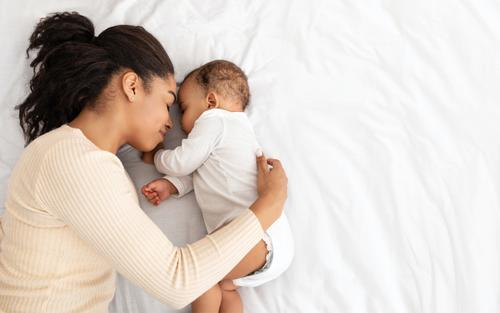
Culturally centered birth center improves equity in health care before and after birth
Racial inequities in health care put African American women and their babies at greater risk for birth complications and death. School of Public Health researchers, including J'Mag Karbeah, studied the Roots Community Birth Center in Minneapolis—an African American-owned, midwife-led freestanding birth center located in a neighborhood with one of the highest infant mortality rates in the city.
On why she does this work and why it matters
I see myself as someone who is, foundationally, social justice oriented. For me, it feels unfair to not fight for justice, to not fight for equality or equity. And it feels like a preposterous fight in some ways, because it seems [absurd] to be arguing that Black people deserve to be happy. That Black people deserve to be safe, which I think is a central aim of my work. Everyone deserves that level of safety and health and compassion in their everyday life. Everyone should have freedom of life, liberty, and happiness, as we say in our Constitution. And it's unfair that we have these systems and structures in place that we're often blind to because they're so entrenched in our society.
On why she chose the U of M
I chose the U of M School of Public Health, and specifically my advisor, because it was a shift in the conversation. We've been talking about health disparities since Black people were emancipated after the Civil War. But this is a real shift into talking about the role that structures play … to really look at these differences and see that they are the result of social actions and social organization really points to them being inequities. These are not differences we see by chance. These are differences that are the direct result of systems that advantage one group and disadvantage another. So thinking explicitly about structural racism was something that this program does that a lot of other programs weren't doing.
And for me, professionally realizing that there is a place for these questions. … I hadn't met a lot of people who were asking similar questions. And so I thought, well, maybe these questions aren't important, and I think it wasn't until I met my advisor, Dr. Rachel Hardman—who was asking similar questions—that I was like, wait, this matters. I had to professionally overcome the need to be like everybody else and to be okay asking uncommon questions.
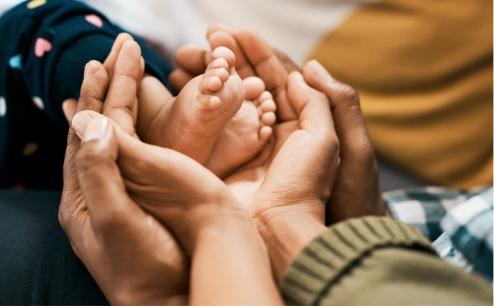
"For me, it feels unfair to not fight for justice, to not fight for equality or equity... Black people deserve to be safe."
On her plans for the future
I want to be able to think about myself as contributing to a discipline in ways that others haven't or start conversations that aren’t currently happening. I'm hoping to find myself at an institution where I can continue to do work that explores the impacts of structural equities on maternal child health and adolescent health.
Starting points for change
Learn about the School of Public Health's vision to make health a human right
Learn about the School of Public Health Center for Antiracism Research and Health Equity
Join the U of M Diversity Community of Practice
Join a U of M Affinity Group
Attend the virtual Keeping Our Faculty Symposium: Recruiting, Retaining, and Advancing Faculty of Color and Indigenous Faculty (March 3-4)
Celebrate Black History Month with programs and events throughout February
Research cited by Karbeah:
Meet the people behind the story
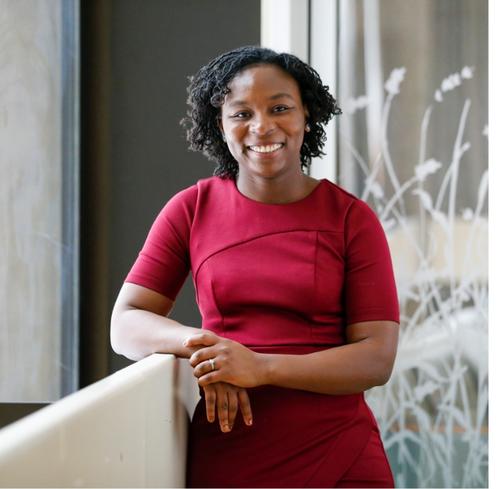
J'Mag Karbeah
J'Mag Karbeah is an assistant professor in the Division of Health Policy and Management, School of Public Health. Her research interests include health disparities, structural racism, adolescent health, reproductive justice, birth outcomes, and policing.
- Categories:
- Health
